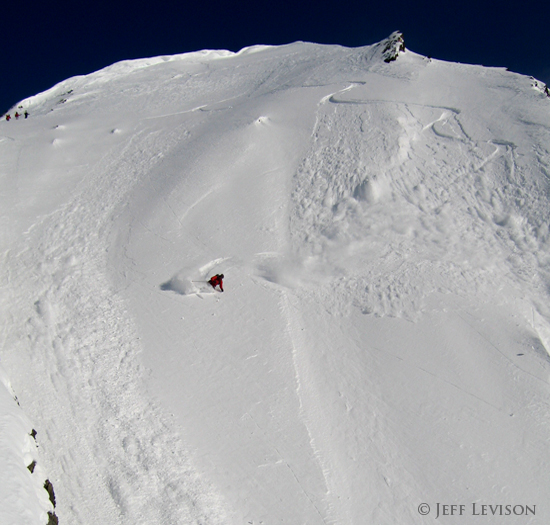Loose Snow Avalanches
| Loose snow
avalanches are characterized by snow crystals that exhibit
little cohesion with one another. These slides typically start
off small, with only a few crystals moving, and gain mass as the
falling crystals 'bump' into the crystals below, and dislodge
them. As conditions permit, this process continues and the
avalanche gains velocity and mass as it travels downslope. To relate this concept to our everyday world, consider a set of bowling pins falling. As the first one falls, it collides with the two pins behind it, which topple the next row, etc. Essentially, this is the same process in action when a loose snow avalanche occurs. Similar to the bowling pins formation, these types of slides often form elongate, triangular formations. These avalanches are often referred to as 'point releases,' or 'sluffs,' and are typically found on high-angle slopes. |
|
|
|
 |
|
A ski-mountaineer
safely avoids the
point-releases on the steep, adjacent
slope by choosing a route along the valley floor. skier:
Luke Smith
location:
Rainbow
Ridge,
Alaska
Range
|
A heli-skier manages
his sluff by moving
onto the higher terrain feature
to allow the snow to safely pass by him. skier:
Dan Starr
location:
Heiden
Glacier,
Chugach
Mountains
|
| Home |
What is an Avalanche? |
Loose
Snow Avalanche |
Slab Avalanche |
Slab Components |
Mechanics of a Slab |
Avalanche Education |
Works Cited |